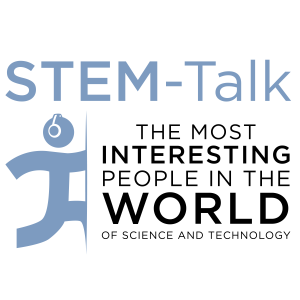
Episode 65: Dr. Brendan Egan talks about the importance of muscle and his research into exogenous ketones
 2018-06-05
2018-06-05
Download
Right click and do "save link as"
Dr. Brendan Egan is a lecturer in exercise and metabolism at University College Dublin who is well known for research that shows resistance training can improve strength, muscle mass, reduce falls in older people, and perhaps even extend lifespans.
In addition to being a first-class researcher, Brendan is also a stand-out player in Ireland’s national sport, Gaelic football.
His current research is exploring the synergy between nutrition and exercise interventions to optimize performance in athletes and the elderly.
Current projects also involve protein hydrolysates in recovery and glycemic management; leucine and n-3 PUFAs in the elderly; and exogenous ketones and athletic performance.
Links:
Brendan Egan’s faculty page:
https://dcu.academic.ie/live/!W_VALOCAL_DCU_PORTAL.PROFILE?WPBPRSN=1631629
Brendan Egan’s Researchgate profile
https://www.researchgate.net/profile/Brendan_Egan2/contributions
Brendan Egan’s TEDx talk:
https://youtu.be/LkXwfTsqQgQ
Exercise Metabolism and the Molecular Regulation of Skeletal Muscle Adaptation
https://www.sciencedirect.com/science/article/pii/S1550413112005037
Metabolism of ketone bodies during exercise and training:
https://physoc.onlinelibrary.wiley.com/doi/epdf/10.1113/JP273185
Fueling performance: Ketones Enter the Mix:
https://www.cell.com/cell-metabolism/fulltext/S1550-4131(16)30438-7
Does Strength-Promoting Exercise Confer Unique Health Benefits?
https://academic.oup.com/aje/article-abstract/187/5/1102/4582884?redirectedFrom=fulltext
Does Strength-Promoting Exercise Confer Unique Health Benefits?
https://physoc.onlinelibrary.wiley.com/doi/full/10.1113/JP275938
Show notes:
2:46: Dawn opens by mentioning that Brendan was born in Detroit, and that his Irish father moved the family to Ireland when Brendan was 3 years old. Dawn asks if Brendan’s mother was American.
4:09: Dawn comments on how Brendan was very athletic as a child and played Gaelic football, which is Ireland’s national sport, and asks if he could explain how this game is played.
6:02: Ken, following up on the last question, asks what Brendan’s training is like for this sport, and how he manages to fit it into his busy schedule as a professor.
7:41: Dawn asks if it is true that even though Brendan’s best grades were in math and physics, he never considered a career in science while he was in high school.
8:37: Dawn mentions that Brendan ended up at the University of Limerick after graduating, asking what made him decide to attend Limerick as well as what prompted him to major in sports and exercise science.
9:46: Dawn asks about two people, Phil Jakeman and John Kirwan, who played a big role in shaping Brendan’s education at Limerick.
11:58: Dawn comments on how after completing his bachelor’s of science degree, Brendan went to work on his master’s, heading to the UK and attending Loughborough University where he graduated with distinction in sports exercise and nutrition. Dawn asks what made him decide to attend Loughborough, and what stood out about his time there.
13:33: Dawn mentions that Brendan returned to Ireland in 2004 to start his doctoral studies under the supervision of Dr. Donal J O'Gorman at Dublin City University. Dawn asks what that experience was like.
15:06: Ken asks what Brendan learned from his research with Dr. O’Gorman, which focused on skeletal muscle adaptation to exercise and, in particular, continuity between acute molecular responses to individual bouts of exercise and the adaptations in skeletal muscle induced by exercise training.
18:30: Dawn asks what took Brendan to Karolinska Institute in Stockholm.
19:51: Brendan talks about his work at Karolinska using animal intravenous cell systems, and his research into transcriptional regulation of skeletal muscle insulin resistance and type 2 diabetes utilizing small non-coding RNA’s.
23:39: Ken mentions that Brendan’s first faculty position was at the U...
view more
More Episodes
012345678910111213141516171819
Create your
podcast in
minutes
- Full-featured podcast site
- Unlimited storage and bandwidth
- Comprehensive podcast stats
- Distribute to Apple Podcasts, Spotify, and more
- Make money with your podcast
It is Free
- Privacy Policy
- Cookie Policy
- Terms of Use
- Consent Preferences
- Copyright © 2015-2024 Podbean.com



